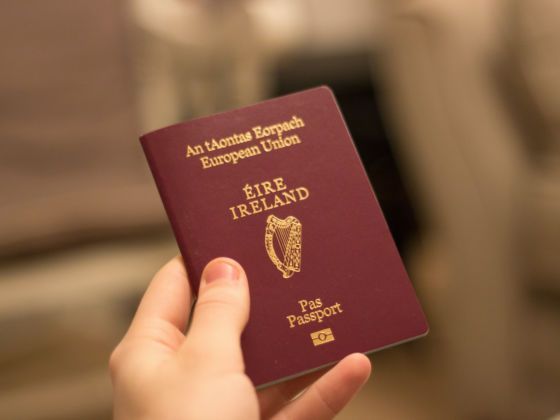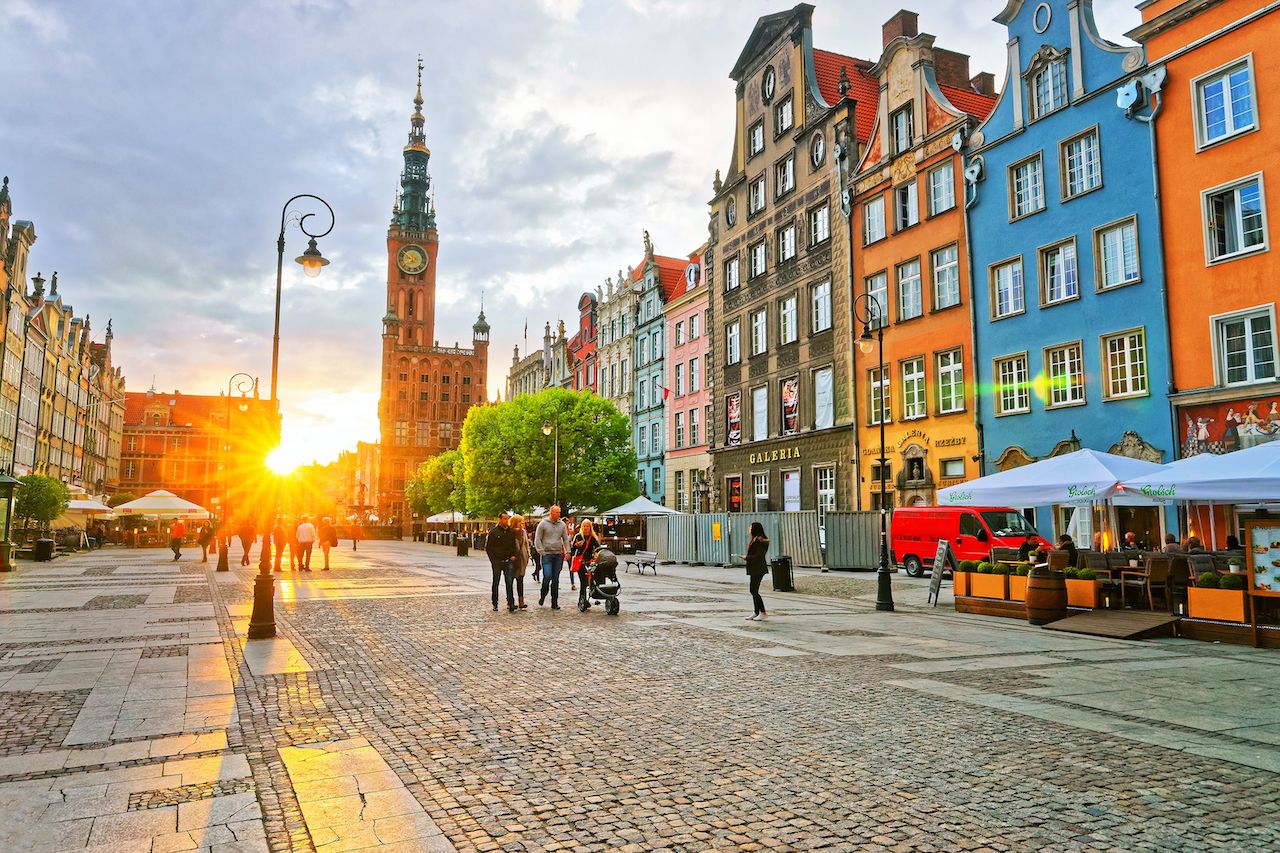The US passport is very strong, meaning US citizens can visit 184 countries without the need to obtain a visa. However, if you like what you see and want to remain abroad for a little longer than a couple of weeks, you typically only have a few months. Failure to leave when you’re supposed to could result in deportation or an indefinite ban from the country. However, there are a few ways around the limit — you could navigate the complex process of obtaining a long-term residency or work visa, or you could earn a passport by descent and become a full-fledged citizen of that country. When it comes to Europe and the Schengen zone, the latter option means you’ll also have access to free travel and residence throughout the entire continent. While this might sound like the most difficult route, obtaining citizenship by descent is actually easier than you might think, especially for a select few countries.


What is citizenship by descent?
Earning citizenship by descent is straightforward. If you can prove that you are directly descended from relatives born in a given country — usually grandparents, but sometimes even great grandparents — you could be eligible to earn citizenship in that country. With citizenship comes a passport that will allow you to stay in that country for as long as you like, and possibly even grant you freedom of residence in other affiliated areas as well. Requirements vary immensely among countries offering such programs, so it’s important to pay attention to the details of your desired destination and potentially even hire a lawyer to make the process smoother.
Dozens of countries offer heritage-based citizenship programs, but these are the ones with the most straightforward process.
1. Italian citizenship

Photo: Efired/Shutterstock
Anyone with more than 10 percent Italian heritage tends to cling to their Italian heritage with fierce pride and mention it as often as possible. Well, if you’re from Italian origins, now’s your chance to turn your favorite topic of conversation into an actual legal status.
Obtaining Italian citizenship is simple. While most countries require your parents or grandparents to have been born there, Italy lets you go back even further. If you can prove that a great-grandparent was born in Italy, you will be eligible for citizenship yourself. However, your lineage must be “uninterrupted”, meaning none of your ancestors can have renounced their Italian citizenship before passing it along to their children.
Since so many US citizens qualify for Italian citizenship by descent, it can take up to 18 months to get an appointment to review your application. So if you’re interested, you’d better apply quickly.
2. Irish citizenship

Photo: shutterupeire/Shutterstock
Irish citizenship is similarly straightforward. If you have a grandparent born in Ireland, you are entitled to Irish citizenship by descent. If this is the case, you’re required to register yourself on the Foreign Birth Register before you can apply for citizenship. However, it takes between nine and 12 months for the Foreign Birth Registration application to be processed.
If your grandparents weren’t born in Ireland but your great-grandparents were, you’re not entirely out of luck. You can obtain Irish citizenship by descent through a great grandparent only if one of your parents has already registered themselves on the Birth Register in the past.
To be eligible, you must be prepared to submit a civil birth certificate, the original civil birth certificate of a parent or grandparent who is an Irish citizen, and other relevant forms of identification.
3. Polish citizenship

Photo: Roman Babakin/Shutterstock
Much like Italy, Poland’s citizenship program is based on uninterrupted lineage. As long as none of your ancestors renounced their Polish citizenship at any time, you will still be eligible. You can trace your lineage back to your great-grandparents, which makes Polish citizenship one of the most accessible nationalities to obtain.
What complicates the process, however, is Poland’s complex political and military history. Many families were displaced by war in the early 20th century, and many documents destroyed, potentially making it difficult to supply the necessary proof of ancestry. This includes birth certificates, proof of residency, and other documents.
You must be able to prove that you have parents, grandparents, or great-grandparents who were either born in Poland after 1920; left Poland before 1920 (but whose residential address can be found in the Polish, Prussian, Russian, or Austro-Hungarian registers); or who maintained Polish citizenship until you were born.
4. Greek citizenship

Photo: Balate Dorin/Shutterstock
Unfortunately, great-grandparents aren’t fair game when it comes to obtaining Greek citizenship. If you can prove that a parent or grandparent was born in Greece, however, you’re golden. You will be required to provide the birth certificate of the ancestor in question, and — here’s the catch — the documentation must be issued by a Greek municipal authority. That means your ancestry must have been registered at the municipality of a town in Greece, and the birth certificate needs to include the municipality number. After this, you must obtain birth, death, and marriage certificates for all subsequent ancestors, translated into Greek.
For this reason, it’s recommended that you hire a translator to make sure all your documents are in order and are legible by the necessary authorities.
5. Portuguese citizenship

Photo: ESB Professional/Shutterstock
Portugal’s process differs from other countries, but for those eligible, it presents an easy path to citizenship. Portugal has a special citizenship program for those of Sephardic Jewish heritage, designed to help the ancestors of Jews persecuted in the 16th-19th centuries to reconnect with their ancestral roots.
To obtain Portuguese citizenship, you don’t necessarily need to provide a relative’s Portuguese birth certificate. You do, however, need to establish that your ancestor, after leaving Portugal, maintained ties with diasporic Sephardic Jewish communities, many of which migrated from Portugal to Greece, Turkey, Morocco, and elsewhere in Eastern Europe, before the Holocaust. Proving an emotional connection to Portugal and a continued immersion in Portuguese or Sephardic communities is sufficient to meet this requirement.
For many Sephardic Jews, this requirement may be easy to meet, as its vague terms are designed to accommodate families whose documents may have been lost amid centuries of persecution. Birth certificates, letters, documents in ladino (a Judeo-Spanish language), Portuguese last names, and any documents relating to an ancestor’s affiliation with a diasporic Sephardic community are all fair game.
It’s important to note that you do not need to be Jewish yourself to take advantage of the Portuguese Sephardic citizenship program. As long as you can prove that you’re descended from a Sephardic community of Portuguese origin.